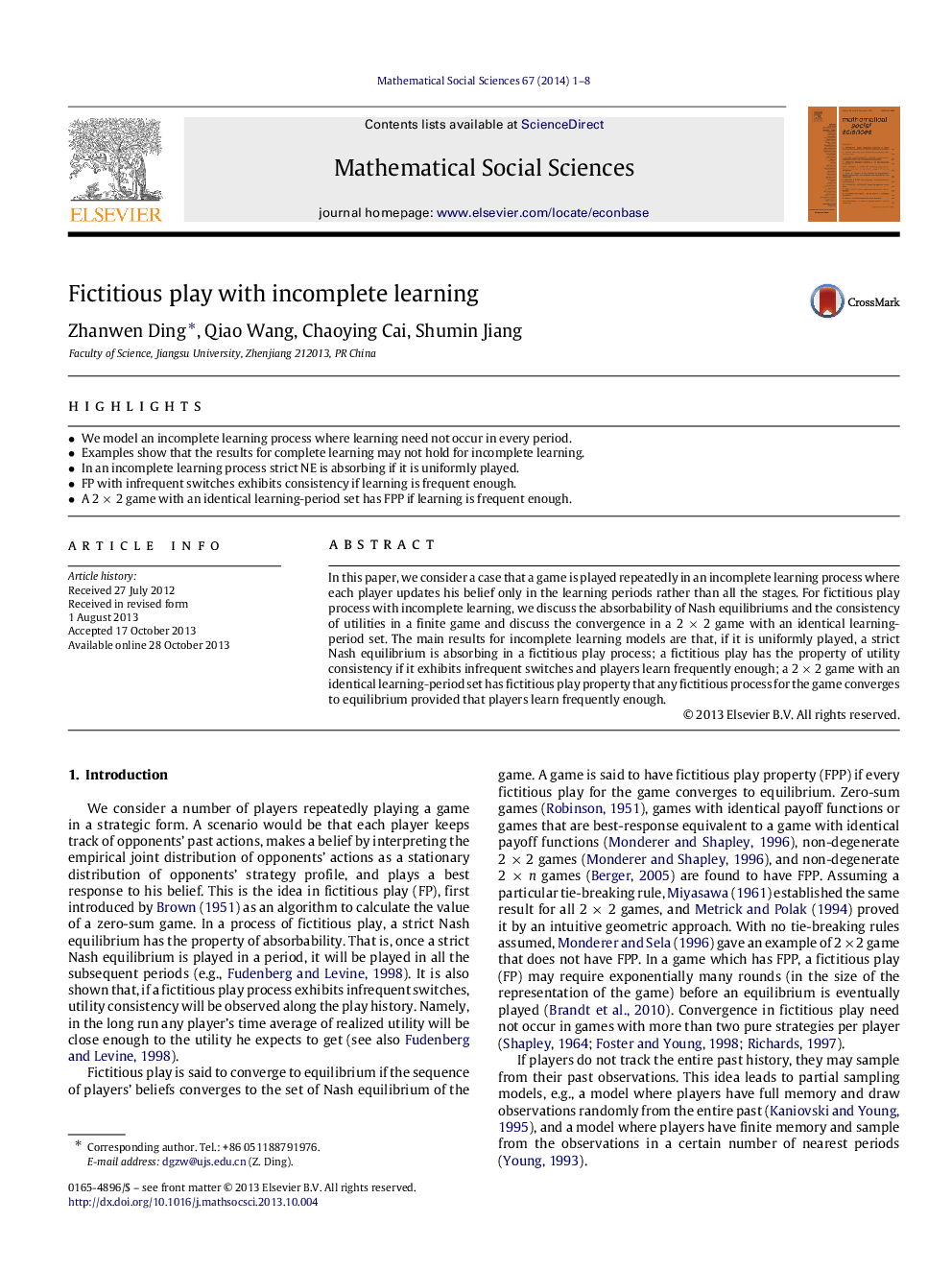| Article ID | Journal | Published Year | Pages | File Type |
|---|---|---|---|---|
| 972618 | Mathematical Social Sciences | 2014 | 8 Pages |
Abstract
In this paper, we consider a case that a game is played repeatedly in an incomplete learning process where each player updates his belief only in the learning periods rather than all the stages. For fictitious play process with incomplete learning, we discuss the absorbability of Nash equilibriums and the consistency of utilities in a finite game and discuss the convergence in a 2Ã2 game with an identical learning-period set. The main results for incomplete learning models are that, if it is uniformly played, a strict Nash equilibrium is absorbing in a fictitious play process; a fictitious play has the property of utility consistency if it exhibits infrequent switches and players learn frequently enough; a 2Ã2 game with an identical learning-period set has fictitious play property that any fictitious process for the game converges to equilibrium provided that players learn frequently enough.
Related Topics
Physical Sciences and Engineering
Mathematics
Applied Mathematics
Authors
Zhanwen Ding, Qiao Wang, Chaoying Cai, Shumin Jiang,
